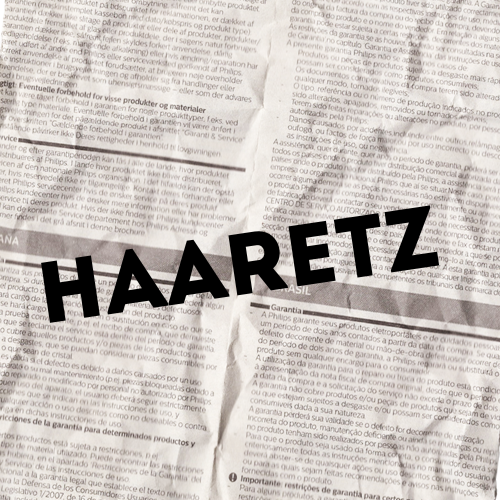In a dramatic decision, the Israeli government has severed ties with the influential newspaper Haaretz. State-funded institutions are now banned from advertising in or communicating with the publication. The government claims the newspaper has repeatedly undermined Israel’s legitimacy and its right to defend itself.
This move comes after controversial remarks made by Haaretz publisher Amos Schocken during a conference in London. Schocken criticized Prime Minister Benjamin Netanyahu’s government, accusing it of imposing what he called a “cruel apartheid regime” on Palestinians. He also suggested that sanctions might be necessary to pressure the government. The use of the term “freedom fighters” when referring to Palestinians fighting Israeli forces caused a public outcry. Schocken later clarified that he was not referring to Hamas, but the damage was already done.
In response, Israel’s Communications Minister, Shlomo Karhi, spearheaded a push to sanction the newspaper. Prime Minister Netanyahu approved the decision, which critics say was rushed and lacked legal review. Haaretz denounced the move as an attack on press freedom, accusing the government of taking a dangerous step toward silencing dissent.
US Targets Israeli Settler Group with Sanctions for West Bank Violence
Haaretz Responds: “A Blow to Democracy”
Haaretz, a left-leaning newspaper known for its critical stance on the government, strongly condemned the sanctions, calling them a direct attack on democracy. The newspaper stated, “This opportunistic resolution was passed without any legal review. It is yet another step in Netanyahu’s journey to dismantle Israeli democracy.”
The publication compared Netanyahu to authoritarian leaders, accusing him of adopting tactics similar to those of global strongmen to suppress independent media. The decision, Haaretz argued, is an attempt to muzzle the press during a time of crisis when critical voices are most needed.
Hezbollah’s Media Chief Mohammed Afif Killed in Beirut by Israeli Airstrike
Haaretz emphasized its role as a vital counterbalance to the dominant media landscape in Israel. According to critics of the government, most Israeli media outlets have aligned themselves with the state’s perspective, particularly during the ongoing war in Gaza. This leaves Haaretz as one of the few platforms reporting on the human cost of the conflict on both sides.
US Targets Israeli Settler Group with Sanctions for West Bank Violence
One columnist for Haaretz expressed concern about the state of Israel’s media, stating that many outlets have become “mouthpieces” for the government. He added that Haaretz provides an essential alternative by showing the realities of Gaza, which are often omitted from mainstream coverage.
Despite the government’s efforts to limit its reach, Haaretz has vowed to continue its independent reporting, declaring that it will not become a “government pamphlet.”
A Broader Media Crackdown
The sanctions against Haaretz are part of a larger pattern of tightening control over the media in Israel, particularly during the ongoing war with Gaza. Human rights groups and international observers have raised alarms about the treatment of journalists and the shrinking space for press freedom in the region.
In Gaza, the toll on journalists has been devastating. Dozens of Palestinian reporters have been killed since the conflict began, including several from major international outlets. Among them were Al Jazeera journalists like Ismail al-Ghoul and Hamza Dahdouh. In addition, Al Jazeera has been forced to shut down its offices in Israel and the occupied West Bank due to increasing threats against its staff.
The Israeli government has faced criticism for its actions against the media, with accusations that it is silencing critical voices to control the narrative of the war. This includes targeting foreign media outlets and restricting coverage from within Gaza.
Anwar Ibrahim Calls for UN Sanctions on Israel Over Palestine Crisis
The sanctioning of Haaretz adds another layer to these concerns. Critics argue that the move is not just about one newspaper but reflects a broader strategy to suppress dissent and limit public access to independent reporting. They warn that the government’s decision risks undermining the free flow of information at a time when transparency is crucial.
Even amid this pressure, Haaretz remains defiant. The newspaper has pledged to uphold its journalistic mission and continue covering controversial topics, even if it means facing further retaliation from the government. However, the sanctions against Haaretz are a stark reminder of the challenges facing independent media in Israel today.
This unfolding situation has sparked a wider debate about the role of the press in holding governments accountable and the importance of protecting journalistic freedom, especially in times of conflict.


